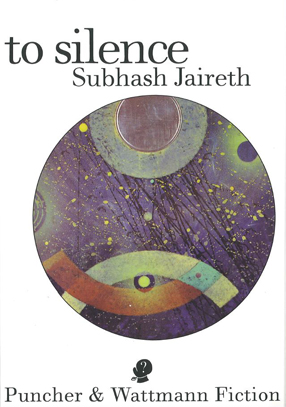|
Subhash Jaireth, To Silence, extract‘It was an affair destined to fail like many others before and after; a syuzhet for a short story he would have called it. I have never been able to make sense of his endless affairs. Towards women he was often very decent and honest but there were times he would remind me of Trigorin in The Seagull. So heartless and deceitful. But the women were equally bad, ready to pounce and conquer him. It was hard to keep them away from him; the worst thing of all was the deceit with which they used to compete with each other. Pathetic they were. We used to call them “Antonovkas” and laugh at them. His marriage to Olga didn’t deter them either, forcing her to whinge and whine. Over the years some had become bitter and twisted but there were many who still remembered him with love and affection. I think Lydia was one of the kinder ones who had remained loyal to him, unable to forget the brief moments of love and friendship. I met Lydia a year later in Moscow. The trip was forced on me. Some urgent matters about the Yalta House had to be discussed with the authorities. I found her living in a tiny room, damp, dark and oppressive. We sat round a small table littered with cigarette butts. She talked slowly, desperate to order her thoughts. The words resisted coming out; she paused to catch her breath, coughed a lot and throughout our short conversation sipped coffee that smelt of vodka. I felt terrible but to help her in any way wasn’t possible. I had my own problems to sort out. The conversation too was about trivial things, both of us taking care to avoid any mention of dear Anton or Sasha Smagin. As I got ready to leave she opened her little handbag and showed me a photo, the last of Sasha Smagin. He was a lovely man, tall and handsome with the nicest of smiles, too eager to help in any way possible. It was very kind of him to travel with me inspecting properties near Polatava. Anton loved the rural lifestyle and was keen to find a suitable house for us to live. We saw several and a few were quite good but somehow it didn’t work out. His proposal didn’t surprise me and it took me only a couple of days to resolve the issue; “yes” I would say and get ready for the marriage, I had thought then. “You know Antsoha I have decided to get married,” I had told Brother Anton one day. He knew what was going on, and I had reasons to believe that he too was quite fond of Sasha Smagin. But he didn’t say anything, leaving me to interpret his silence, which wasn’t very hard. The matter was resolved there and then. I had surrendered once again; perhaps that is why it hurt so much to read his letter to Suvorin. “My sister,” he had written, “has decided against marriage, but the affair appears to continue through letters. The situation is incomprehensible. The rumour is that she has declined the proposal once again.” Yes, “once again” but unfortunately we would enact the same scene a few more times and each time it would end the same way. The sad thing is that the embarrassment and pain I would feel each time would remain undiminished. I should have learnt my lesson the first time and reconciled. Was I stupid, naïve or just confused? But he wasn’t of any help either. The silence he chose to respond with was ambiguous and often irksome. Would I have accepted the proposal if he had given his approval? I don’t know. I am not sure at all. Did Anton ever feel guilty that because of him I had repeatedly declined? He must have. But there was something odd with me as well. Was I too playing games with him, trying to win him over with my sacrifices? A ploy to lay claim to him and his heritage?’ (from Maria Chekhova) |
||
|
|
|||

